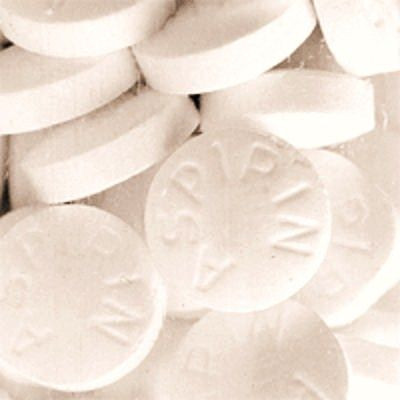Aspirin as Effective as Prescription Warfarin for Heart Failure Patients, Large Study

Aspirin may be just as effective as more expensive prescription blood thinning drugs in most heart patients for preventing death, stroke or brain hemorrhage, according to a new large international study.
The double-blind 10-year study, published in the New England Journal of Medicine, which consisted of 2,305 patients in 11 different countries, found no statistically significant difference between the effectiveness of the two drugs.
The findings showed that while the combined risk of death, stroke and cerebral hemorrhage was 7.47 percent per year for patients taking the blood-thinner warfarin, or Coumadin, patients taking aspirin had only a slightly higher risk at 7.93 percent, a difference that has no statistical significance.
While patients taking warfarin had half the stroke risk of people taking aspirin, those taking the blood thinner drug had double the risk for major bleeding, thus cancelling the two factors out, according to researchers.
However, researchers noted that there was evidence that warfarin may be more effective in preventing the combined outcome of death, stroke and intracerebral hemorrhage in patients who were followed four years or longer.
Past research confirmed that warfarin was more effective than aspirin in preventing stroke in heart failure patients with atrial fibrillation, and researchers say that additional and follow-up analysis is needed to evaluate and identify patients for whom one of the medications would be better.
"Since the overall risks and benefits are similar for aspirin and warfarin, the patient and his or her doctor are free to choose the treatment that best meets their particular medical needs,” lead author Shunichi Homma of Columbia University Medical Center said in a statement released on Wednesday.
“However, given the convenience and low cost of aspirin, many may go this route," Homma added.
Heart failure increases the risk of a blood clot that can lead to a stroke, which can ultimately be fatal or disabling. Aspirin prevents the blood from clotting, and warfarin, a drug that requires a prescription and physician monitoring, thins the blood.
"With at least six million Americans -- and many more around the world -- suffering from heart failure, the results of the WARCEF study will have a large public health impact," Walter Koroshetz, deputy director of the National Institute for Neurological Disorders and Stroke, said in a statement.
"The key decision will be whether to accept the increased risk of stroke with aspirin, or the increased risk of primarily gastrointestinal hemorrhage with warfarin," he said.
Published by Medicaldaily.com



























